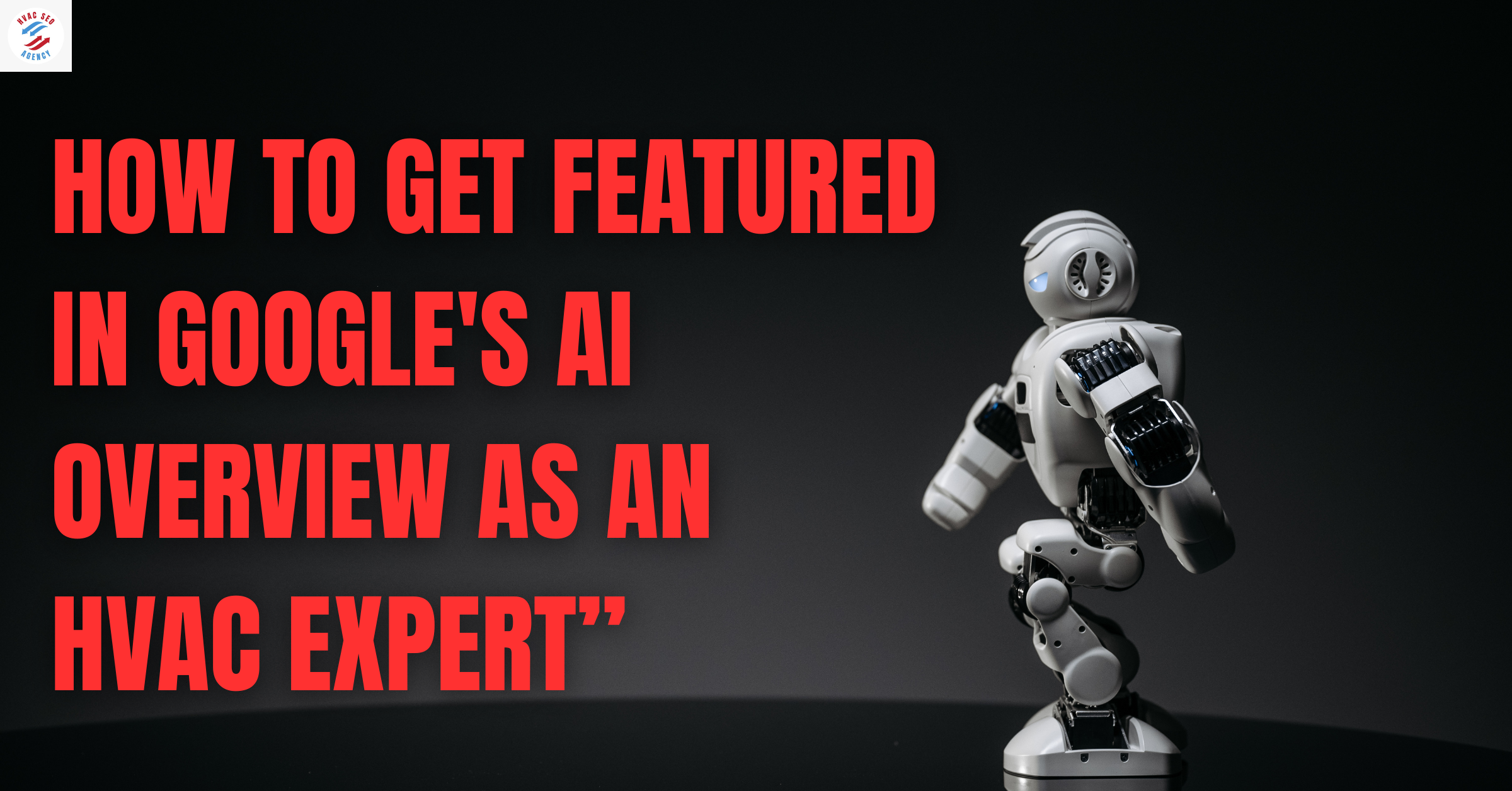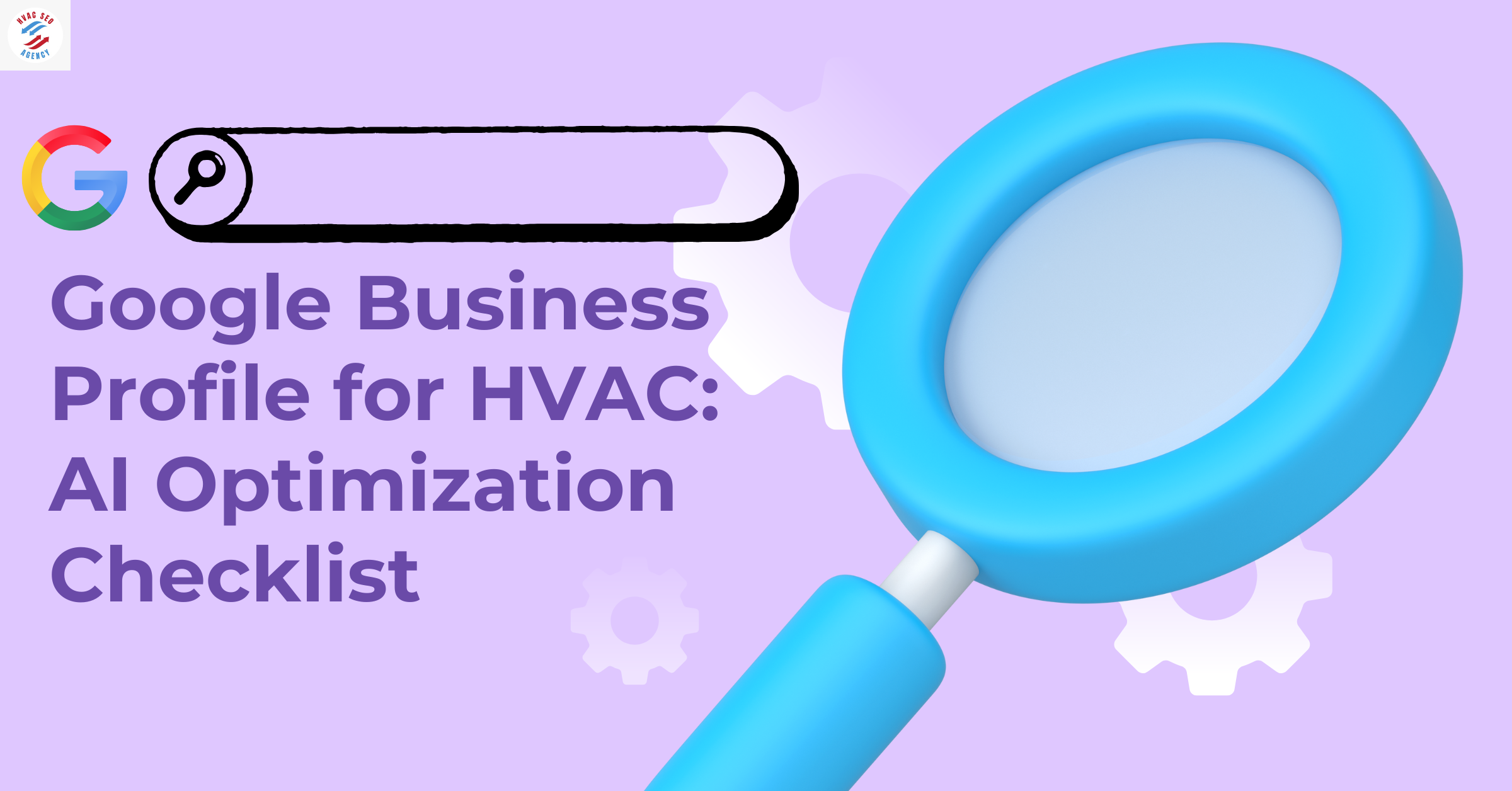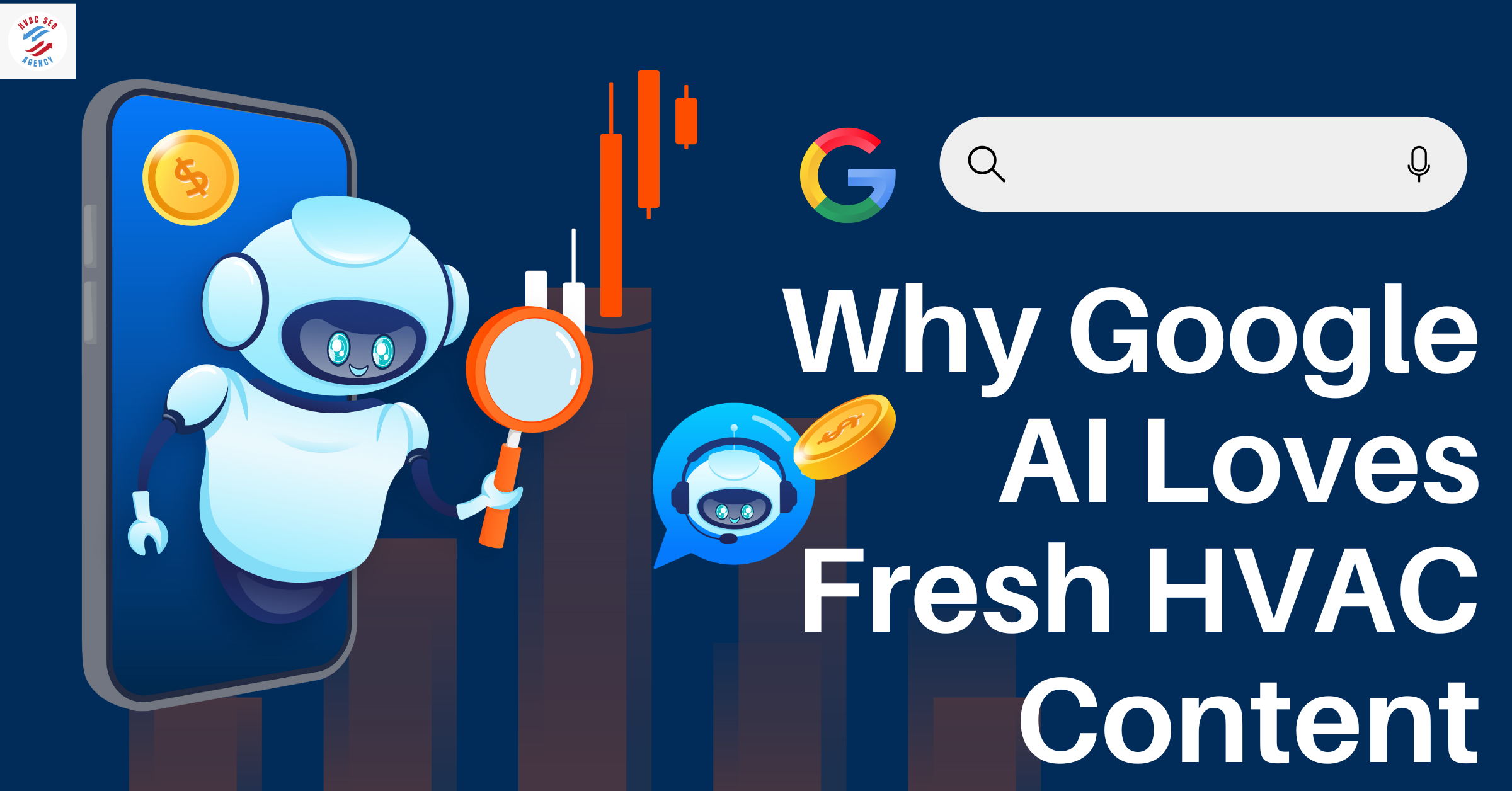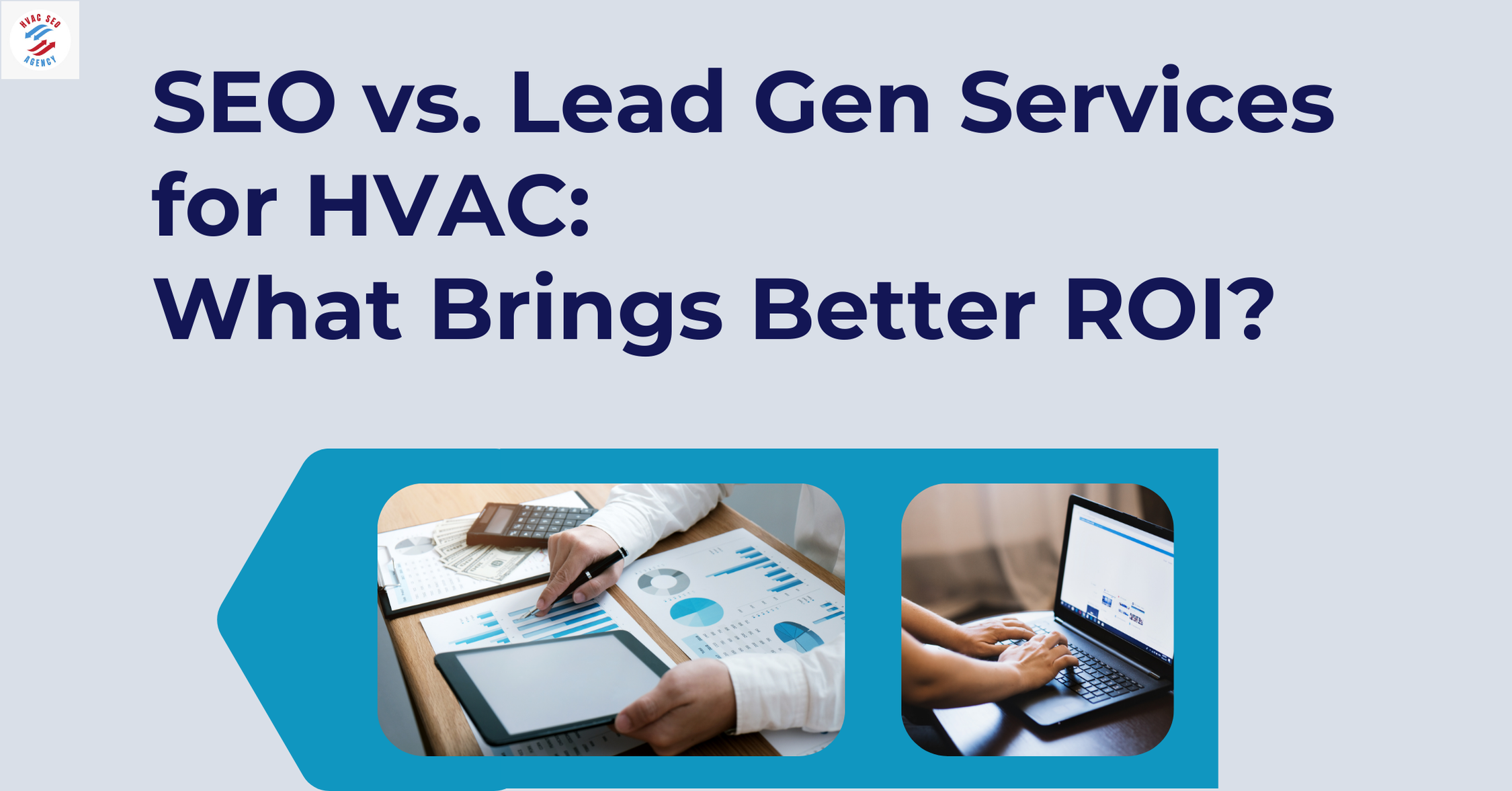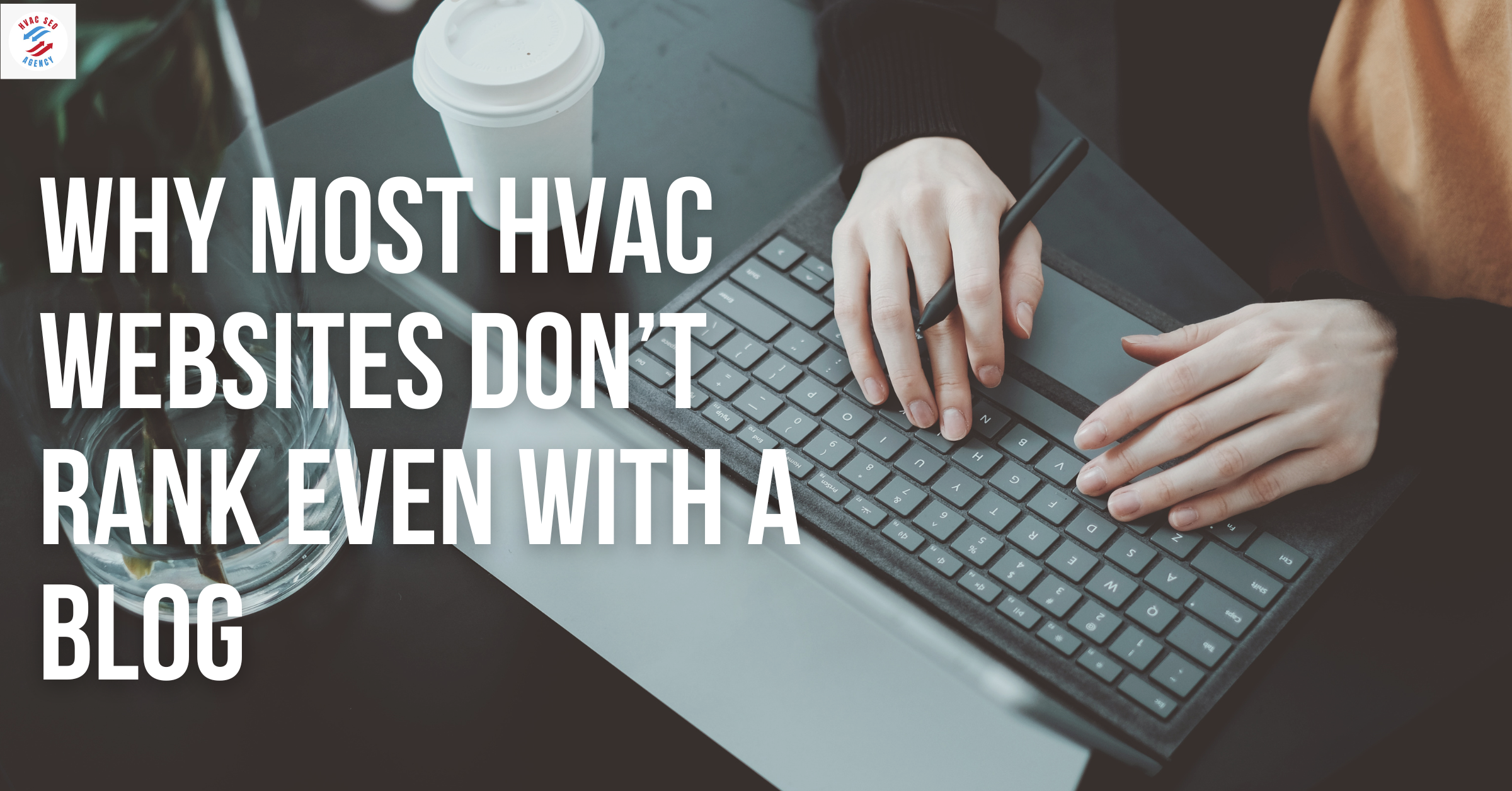Best HVAC Lead Generation Companies: Are They Worth It?
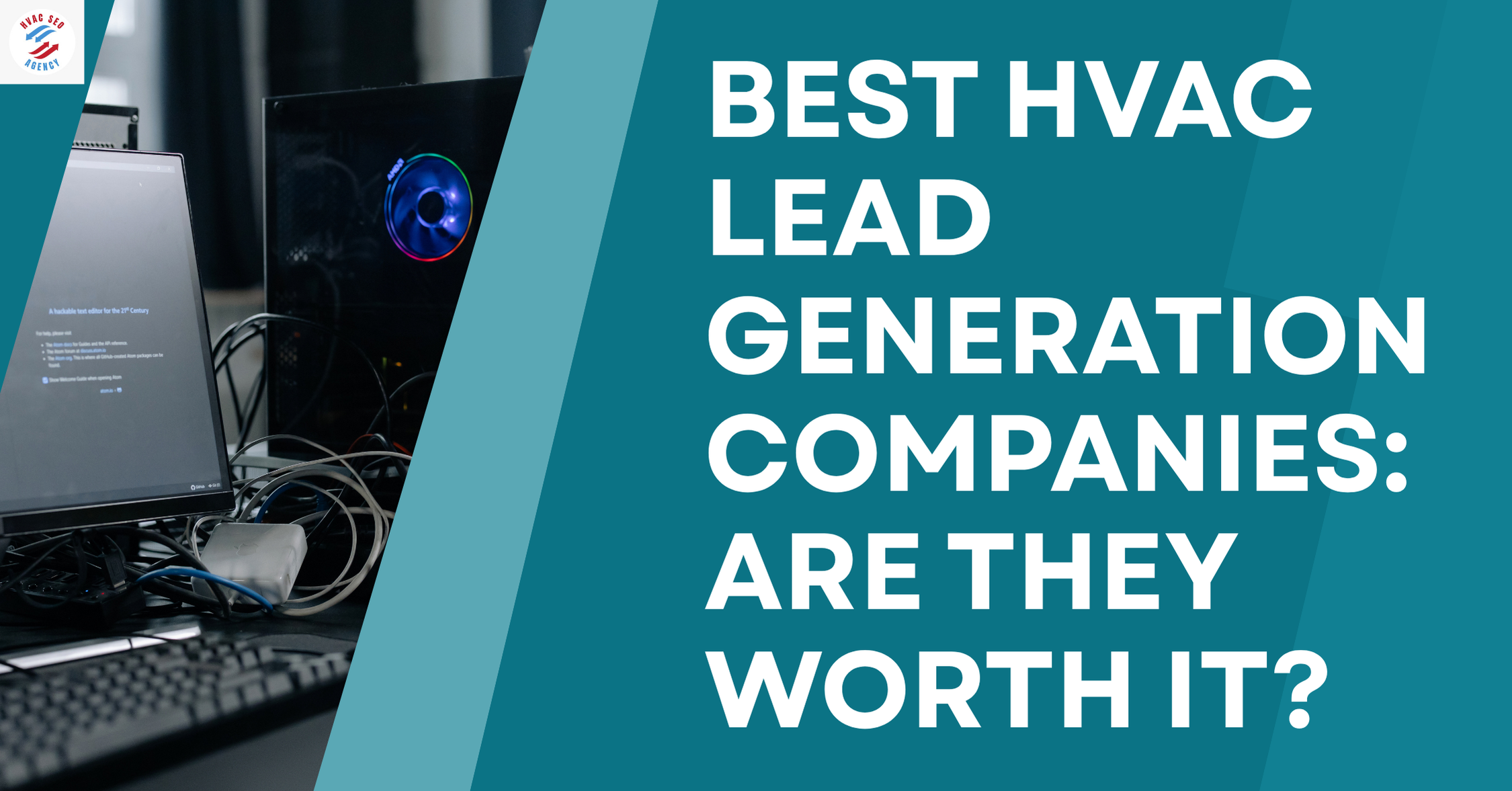
Section 1: The Critical Role of Local SEO for HVAC Contractors in Orlando
In the competitive HVAC market of Orlando, Florida, establishing a strong online presence is essential for attracting local customers. Local SEO for HVAC contractors in Orlando is a strategic approach that enhances visibility in local search results, connecting businesses with homeowners seeking heating and cooling services.
Why Local SEO Matters for HVAC Contractors
Local SEO focuses on optimizing a business's online presence to appear in local search results, particularly in Google's "Local Pack" and map listings. For HVAC contractors, this means being visible when potential customers search for services like "AC repair near me" or "HVAC installation in Orlando."
Implementing effective local SEO strategies can lead to increased website traffic, higher conversion rates, and ultimately, more service calls.
Key Components of Local SEO for HVAC Contractors
Google Business Profile Optimization: Ensuring that your Google Business Profile is complete and accurate is crucial. This includes up-to-date contact information, business hours, and service descriptions.
Local Keyword Targeting: Incorporating location-specific keywords such as "HVAC services in Orlando" or "Orlando AC repair" into website content helps improve search visibility.
Online Reviews Management: Encouraging satisfied customers to leave positive reviews on platforms like Google can enhance credibility and influence potential clients.
Consistent NAP Information: Maintaining consistent Name, Address, and Phone number (NAP) information across all online directories and listings reinforces trust with search engines.
Mobile-Friendly Website Design: With a significant number of users searching for services on mobile devices, having a responsive website design ensures a seamless user experience.
Benefits of Local SEO for HVAC Contractors in Orlando
Increased Online Visibility: Appearing in local search results positions your business in front of customers actively seeking HVAC services.
Higher Conversion Rates: Targeted local traffic is more likely to convert into service calls and appointments.
Competitive Advantage: Effective local SEO strategies can help smaller HVAC businesses compete with larger companies by leveling the online playing field.
Cost-Effective Marketing: Compared to traditional advertising methods, local SEO offers a higher return on investment by targeting users actively searching for your services.
Partnering with the Best HVAC SEO Marketing Services
To fully leverage the benefits of local SEO, collaborating with the best HVAC SEO marketing services is advisable. These specialized agencies possess the expertise to implement tailored strategies that align with your business goals and the unique dynamics of the Orlando market.
By focusing on local SEO for HVAC contractors in Orlando, businesses can enhance their online presence, attract more qualified leads, and achieve sustainable growth in a competitive industry.
Section 2: Understanding HVAC Lead Generation Companies and Their Impact on Business Growth
In the competitive HVAC industry, generating consistent and high-quality leads is crucial for business success. HVAC lead generation companies specialize in connecting HVAC service providers with potential customers actively seeking heating, ventilation, and air conditioning solutions. By leveraging various marketing strategies, these companies aim to deliver leads that can convert into loyal clients, thereby driving revenue growth.
What Are HVAC Lead Generation Companies?
HVAC lead generation companies are specialized firms that focus on identifying and capturing potential customers for HVAC businesses. They employ a range of marketing techniques, including search engine optimization (SEO), pay-per-click (PPC) advertising, social media marketing, and content creation, to attract individuals or businesses in need of HVAC services. Once a lead is captured, it is passed on to the HVAC contractor, who can then follow up to convert the lead into a customer.
The Role of HVAC Third-Party Leads
HVAC third-party leads refer to potential customers generated by an external company rather than through the HVAC business's own marketing efforts. These leads are often sold to multiple contractors, which can lead to increased competition. However, some lead generation companies offer exclusive leads, ensuring that the HVAC business is the only one contacting that particular lead. The quality and exclusivity of HVAC third-party leads can significantly impact conversion rates and return on investment.
Benefits of Partnering with HVAC Lead Generation Companies
Increased Lead Volume: By outsourcing lead generation, HVAC businesses can receive a steady stream of potential customers without the need to invest heavily in marketing infrastructure.
Time Efficiency: Contractors can focus on service delivery while the lead generation company handles marketing efforts.
Access to Marketing Expertise: These companies often have specialized knowledge and tools to effectively target and attract potential customers.
Scalability: As the HVAC business grows, lead generation efforts can be scaled accordingly to meet increasing demand.
Considerations When Choosing an HVAC Lead Generation Company
Lead Quality: Assess whether the leads provided are exclusive or shared, and evaluate their conversion potential.
Cost Structure: Understand the pricing model, whether it's pay-per-lead, subscription-based, or commission-based.
Transparency: Ensure the company provides clear reporting and analytics to track lead performance.
Reputation: Research reviews and testimonials to gauge the company's reliability and effectiveness.
Integrating HVAC SEO Agencies for Enhanced Lead Generation
Collaborating with an HVAC SEO agency can complement the efforts of lead generation companies. While lead generation companies focus on immediate lead acquisition, SEO agencies work on long-term strategies to improve organic search visibility. By optimizing website content, improving site structure, and building backlinks, SEO agencies help HVAC businesses attract more visitors to their websites, which can lead to increased direct inquiries and reduced reliance on purchased leads.
In summary, HVAC lead generation companies play a pivotal role in connecting service providers with potential customers. By understanding their functions, benefits, and how they integrate with SEO strategies, HVAC businesses can make informed decisions to drive growth and profitability.
Section 3: Write the Perfect HVAC Sales Pitch That Converts
Crafting an effective HVAC sales pitch is essential for converting leads into loyal customers. A well-structured pitch not only highlights the value of your services but also addresses the specific needs and concerns of your potential clients.
Key Elements of a Successful HVAC Sales Pitch
Personalization: Tailor your pitch to address the unique requirements of each customer. Understanding their specific situation allows you to offer solutions that resonate.
Clear Value Proposition: Clearly articulate the benefits of your HVAC services, focusing on aspects like energy efficiency, cost savings, and improved comfort.
Credibility and Trust: Share testimonials, certifications, and case studies to build trust and demonstrate your expertise in the HVAC industry.
Call to Action: Conclude your pitch with a clear and compelling call to action, guiding the customer on the next steps to take advantage of your services.
Sample HVAC Sales Pitch Framework
"Hello [Customer Name], I understand that maintaining a comfortable indoor environment is a priority for you. Our HVAC solutions are designed to enhance energy efficiency and reduce utility costs. For instance, our recent client in [Location] experienced a 25% decrease in energy bills after our system upgrade. We are certified professionals committed to delivering quality service. Would you be interested in scheduling a free consultation to explore how we can assist you?"
Integrating HVAC SEO Agencies into Your Sales Strategy
Collaborating with an HVAC SEO agency can amplify your sales efforts by increasing your online visibility. By optimizing your website and content for search engines, these agencies help attract more qualified leads, providing a larger audience for your sales pitches. This synergy between SEO and sales strategies can lead to higher conversion rates and business growth.
Section 4: Evaluating the Effectiveness of HVAC Lead Generation Companies
In the competitive landscape of the HVAC industry, partnering with HVAC lead generation companies can be a strategic move to boost business growth. These companies specialize in connecting HVAC service providers with potential customers actively seeking heating, ventilation, and air conditioning solutions. By leveraging various marketing strategies, they aim to deliver leads that can convert into loyal clients, thereby driving revenue growth.
Understanding HVAC Lead Generation Companies
HVAC lead generation companies are specialized firms that focus on identifying and capturing potential customers for HVAC businesses. They employ a range of marketing techniques, including search engine optimization (SEO), pay-per-click (PPC) advertising, social media marketing, and content creation, to attract individuals or businesses in need of HVAC services. Once a lead is captured, it is passed on to the HVAC contractor, who can then follow up to convert the lead into a customer.
The Role of HVAC Third-Party Leads
HVAC third-party leads refer to potential customers generated by an external company rather than through the HVAC business's own marketing efforts. These leads are often sold to multiple contractors, which can lead to increased competition. However, some lead generation companies offer exclusive leads, ensuring that the HVAC business is the only one contacting that particular lead. The quality and exclusivity of HVAC third-party leads can significantly impact conversion rates and return on investment.
Benefits of Partnering with HVAC Lead Generation Companies
Increased Lead Volume: By outsourcing lead generation, HVAC businesses can receive a steady stream of potential customers without the need to invest heavily in marketing infrastructure.
Time Efficiency: Contractors can focus on service delivery while the lead generation company handles marketing efforts.
Access to Marketing Expertise: These companies often have specialized knowledge and tools to effectively target and attract potential customers.
Scalability: As the HVAC business grows, lead generation efforts can be scaled accordingly to meet increasing demand.
Considerations When Choosing an HVAC Lead Generation Company
Lead Quality: Assess whether the leads provided are exclusive or shared, and evaluate their conversion potential.
Cost Structure: Understand the pricing model, whether it's pay-per-lead, subscription-based, or commission-based.
Transparency: Ensure the company provides clear reporting and analytics to track lead performance.
Reputation: Research reviews and testimonials to gauge the company's reliability and effectiveness.
Integrating HVAC SEO Agencies for Enhanced Lead Generation
Collaborating with an HVAC SEO agency can complement the efforts of lead generation companies. While lead generation companies focus on immediate lead acquisition, SEO agencies work on long-term strategies to improve organic search visibility. By optimizing website content, improving site structure, and building backlinks, SEO agencies help HVAC businesses attract more visitors to their websites, which can lead to increased direct inquiries and reduced reliance on purchased leads.
Section 5: Market Trends and Performance Metrics of HVAC Lead Generation Companies
In the dynamic landscape of the U.S. HVAC industry, understanding market trends and performance metrics is crucial for businesses aiming to optimize their lead generation strategies. This section delves into the current state of the HVAC market, evaluates the effectiveness of HVAC lead generation companies, and highlights the role of HVAC SEO agencies in driving growth.
U.S. HVAC Market Overview
Market Size: The U.S. The HVAC systems market was valued at $30.41 billion in 2023 and is projected to grow at a compound annual growth rate (CAGR) of 7.4% from 2024 to 2030, reaching $49.70 billion by 2030.
Regional Insights: The Western U.S. led in HVAC revenue share at 24.4% in 2023, driven by a high population, strong median incomes, and varied weather conditions that boost residential HVAC demand.
Performance Metrics of HVAC Lead Generation Companies
Evaluating the effectiveness of HVAC lead generation companies involves analyzing key performance indicators such as conversion rates and cost per lead.
Conversion Rates
HVAC Sales: The average conversion rate for HVAC sales is 15.11%, indicating a strong potential for turning leads into customers.
Air Conditioning Installation & Repair: This segment boasts a conversion rate of 13.87%, reflecting the high demand and effectiveness of targeted lead generation strategies.
Cost Per Lead
HVAC Industry: The average cost per lead in the HVAC industry is approximately $92.76, highlighting the investment required for acquiring quality leads.
Role of HVAC SEO Agencies
HVAC SEO agencies play a pivotal role in enhancing the online visibility of HVAC businesses, thereby contributing to lead generation and revenue growth.
Organic Traffic Growth: By optimizing website content and structure, SEO agencies help HVAC companies attract more organic traffic, leading to increased lead opportunities.
Cost Efficiency: SEO strategies often result in a lower cost per lead compared to paid advertising, offering a cost-effective solution for long-term growth.
Brand Authority: Consistent SEO efforts establish HVAC businesses as authoritative sources in their field, building trust with potential customers.
Integrating HVAC Lead Generation Companies and SEO Agencies
Combining the services of HVAC lead generation companies with the expertise of SEO agencies can yield significant benefits:
Diversified Lead Sources: While lead generation companies provide immediate leads, SEO efforts ensure a steady flow of organic leads over time.
Enhanced Conversion Rates: SEO-optimized websites improve user experience, increasing the likelihood of converting leads acquired through various channels.
Sustainable Growth: The synergy between immediate lead acquisition and long-term SEO strategies fosters sustainable business growth.
Setting the right price for HVAC services is crucial for maximizing profitability while remaining competitive in the market. An effective pricing strategy ensures that all costs are covered and desired profit margins are achieved.
Understanding Key Pricing Models
Cost-Plus Pricing: This approach involves calculating the total cost of providing a service (including labor, materials, and overhead) and adding a fixed markup percentage to determine the final price.
Value-Based Pricing: Prices are set based on the perceived value to the customer rather than solely on cost. This strategy considers factors such as urgency, complexity, and the customer's willingness to pay.
Dynamic Pricing: Prices fluctuate based on market demand, seasonality, and other external factors. For instance, higher rates may be charged during peak seasons or emergency situations.
Steps to Price Your HVAC Services for Maximum Profit
Calculate Total Costs:
Labor: Determine the hourly rates of technicians and the estimated time for each service.
Materials: Include the cost of parts, equipment, and consumables.
Overhead: Account for expenses such as utilities, rent, insurance, and administrative costs.
Determine Desired Profit Margin:
Aim for a net profit margin between 10% and 20%, which is considered healthy for HVAC businesses.
Research Market Rates:
Analyze competitor pricing in your service area to ensure your rates are competitive yet profitable.
Select Appropriate Pricing Strategy:
Choose between cost-plus, value-based, or dynamic pricing based on the nature of the service and customer expectations.
Implement Tiered Pricing Options:
Offer "good-better-best" packages to cater to different customer needs and budgets, enhancing perceived value and upselling opportunities.
Integrating HVAC SEO Agencies into Pricing Strategy
Collaborating with HVAC SEO agencies can indirectly influence pricing strategies by enhancing online visibility and attracting higher-quality leads. Improved search engine rankings can lead to increased demand, allowing for more flexible pricing and the potential to command premium rates for specialized services.
Section 7: How to Measure the ROI of HVAC Lead Generation Companies
Evaluating the return on investment (ROI) of HVAC lead generation companies is essential to determine whether the partnership is driving meaningful business growth and profitability. By tracking relevant metrics and aligning them with your business goals, you can make informed decisions about continuing, adjusting, or ending your collaboration.
Key Metrics to Measure HVAC Lead Generation ROI
Lead Volume and Quality
Monitor the number of leads generated each month and assess their quality. High-quality leads are those that match your target customer profile and have a genuine intent to purchase HVAC services. Tracking lead qualification rates helps ensure you’re not paying for irrelevant or low-potential contacts.Conversion Rate
Calculate the percentage of leads that convert into paying customers. A higher conversion rate indicates that the leads provided are relevant and that your sales process is effective. Comparing conversion rates across different lead sources helps identify the most valuable channels.Cost Per Lead (CPL)
Divide the total amount spent on lead generation by the number of leads acquired. Understanding CPL allows you to gauge whether the cost aligns with your budget and industry standards. Aim for a CPL that supports profitability after accounting for service delivery costs.Customer Acquisition Cost (CAC)
Beyond CPL, CAC includes all costs associated with acquiring a new customer, including follow-up marketing and sales expenses. Lowering CAC while maintaining or improving lead quality increases your overall profitability.Lifetime Value (LTV) of Customers
Measure the total revenue generated from customers acquired through lead generation efforts over their entire relationship with your business. A higher LTV justifies higher upfront marketing investments.Lead Response Time
The speed at which your team follows up with leads can significantly impact conversion rates. Ensure that the lead generation company provides timely and accurate lead data, enabling quick outreach.
Best Practices for Tracking ROI
Use CRM and analytics tools to capture lead source data and sales outcomes accurately.
Set clear goals and KPIs before engaging with a lead generation company.
Request transparent, regular performance reports from your partner.
Continuously analyze and optimize your sales funnel to improve conversion efficiency.
Test different lead generation companies or channels to benchmark performance.
Integrating HVAC SEO Agencies to Enhance ROI
Working alongside HVAC SEO agencies can improve your ROI from lead generation companies by diversifying lead sources and increasing inbound organic leads. SEO efforts lower dependence on paid leads and often result in higher-quality inquiries, which tend to have better conversion rates and lower acquisition costs. Combining these strategies creates a balanced approach that supports sustainable growth.
In conclusion, measuring the ROI of HVAC lead generation companies requires a comprehensive approach that goes beyond just lead quantity. By focusing on quality, cost efficiency, and alignment with your business objectives — and integrating SEO strategies — HVAC contractors can maximize the value of their marketing investments and achieve profitable growth.
Section 8: Common Challenges with HVAC Lead Generation Companies and How to Overcome Them
While HVAC lead generation companies can be valuable partners for business growth, contractors often face several challenges that can impact the effectiveness of these services. Understanding these obstacles and implementing strategies to address them is key to maximizing your investment.
Inconsistent Lead Quality
Not all leads provided by lead generation companies are equal. Some may be unqualified, outdated, or shared with multiple competitors, reducing the likelihood of conversion.
How to Overcome:
Choose companies that offer exclusive leads whenever possible.
Set clear lead qualification criteria upfront.
Regularly review lead quality and provide feedback to your provider.
Use lead scoring systems to prioritize high-potential contacts.
High Cost Per Lead
Some lead generation services charge premium rates, which can quickly erode profit margins if leads don’t convert effectively.
How to Overcome:
Negotiate pricing models that include performance-based incentives.
Compare multiple providers to find competitive rates.
Balance lead purchase with organic lead generation through SEO to reduce costs.
Lack of Transparency and Reporting
Without clear data on lead sources, conversion rates, and campaign performance, it’s difficult to assess ROI accurately.
How to Overcome:
Work with companies that provide detailed analytics and regular performance reports.
Integrate lead tracking tools or CRM systems to monitor leads end-to-end.
Schedule periodic reviews with your provider to discuss results and optimize strategies.
Poor Lead Follow-Up Practices
Even high-quality leads can go cold if your sales team doesn’t respond promptly or effectively.
How to Overcome:
Implement a fast and consistent lead response protocol.
Train your sales team on handling leads professionally and persuasively.
Automate follow-up reminders using CRM tools.
Over-Reliance on Third-Party Leads
Depending solely on purchased leads can limit business growth and reduce control over your customer pipeline.
How to Overcome:
Invest in building your own online presence through SEO, content marketing, and social media.
Use lead generation companies as part of a diversified marketing strategy.
Focus on nurturing relationships with customers to generate referrals and repeat business.
Misalignment of Expectations
Sometimes the goals and communication between the HVAC business and the lead generation company don’t align, leading to frustration and underperformance.
How to Overcome:
Establish clear expectations, goals, and KPIs from the start.
Maintain open and regular communication to address issues promptly.
Be willing to adjust strategies based on performance data.
By proactively addressing these common challenges, HVAC contractors can create a more effective partnership with lead generation companies. Combining this with ongoing SEO efforts and a strong sales approach will lead to improved lead quality, higher conversion rates, and sustainable business growth.
Section 9: Tips for Choosing the Right HVAC Lead Generation Company
Selecting the right HVAC lead generation company can make a significant difference in the growth and profitability of your business. With numerous providers in the market, it’s essential to evaluate potential partners carefully to ensure they align with your goals and deliver value.
Assess Industry Experience and Expertise
Look for companies that specialize in HVAC or home services lead generation. Their familiarity with industry-specific challenges and customer behavior increases the likelihood of delivering qualified leads.Evaluate Lead Quality and Exclusivity
Ask whether leads are exclusive to your business or shared with multiple contractors. Exclusive leads generally have higher conversion potential, while shared leads might increase competition and reduce profitability.Understand Pricing Models and Contracts
Clarify the cost structure whether it’s pay-per-lead, subscription-based, or commission-based and any minimum commitments or contract lengths. Avoid companies with hidden fees or inflexible terms.Review Transparency and Reporting Practices
A reputable company should provide clear, regular reports detailing lead volume, sources, and conversion metrics. Transparent data allows you to monitor performance and adjust strategies accordingly.Check Customer Reviews and References
Research testimonials, case studies, and online reviews to gauge the company’s reputation and reliability. Speaking with current or past clients can provide valuable insights.Verify Lead Delivery and Support Systems
Understand how leads are delivered (via email, CRM integration, phone calls) and what support is offered. Efficient lead delivery and responsive customer service are critical to timely follow-up and conversion.Test the Service with a Trial or Pilot Program
Whenever possible, start with a small trial to evaluate lead quality and overall fit. This approach reduces risk and helps you make a data-driven decision.Ensure Integration with Your Sales and Marketing
Choose a partner whose systems and processes can seamlessly integrate with your existing sales workflows and marketing efforts, including your HVAC SEO strategies.
By carefully considering these factors, HVAC contractors can select a lead generation company that complements their business model, enhances lead quality, and contributes to sustainable growth. This strategic choice, combined with robust SEO and sales practices, positions your HVAC business for long-term success in a competitive market.
Section 10: Future Outlook – The Evolving Role of HVAC Lead Generation Companies
As the HVAC industry continues to evolve with technological advancements and shifting consumer behaviors, HVAC lead generation companies must adapt to stay effective and relevant. Understanding future trends helps HVAC contractors prepare and leverage these services for sustained success.
Increased Integration of Artificial Intelligence and Automation
Lead generation companies are increasingly adopting AI-powered tools to better target potential customers, qualify leads, and personalize outreach. Automation helps streamline processes, reduce response times, and improve lead conversion rates.Greater Emphasis on Data-Driven Strategies
Advanced analytics enable lead generation firms to refine marketing campaigns based on real-time data, optimizing ad spend and improving lead quality. HVAC businesses can benefit from more precise targeting and measurable ROI.Expansion of Multi-Channel Marketing
Successful lead generation is no longer confined to just search engines or paid ads. Companies are diversifying into social media platforms, email marketing, video content, and even voice search optimization to capture leads across various touchpoints.Growing Importance of Localized and Hyper-Targeted Campaigns
With local SEO continuing to dominate consumer search behavior, lead generation companies will increasingly focus on geo-targeted campaigns tailored to neighborhood- or city-level audiences, enhancing relevance and conversion potential.Integration with Customer Relationship Management (CRM) Systems
Seamless integration between lead generation platforms and HVAC contractors’ CRM software will become standard, enabling better lead tracking, automated follow-ups, and enhanced customer experience management.Shift Toward Exclusive Leads and Customized Solutions
To address concerns about lead quality and competition, many companies will prioritize offering exclusive leads and personalized marketing solutions tailored to individual business needs.Increased Collaboration Between SEO Agencies and Lead Generation Firms
The lines between SEO agencies and lead generation companies will blur as both work together to provide comprehensive marketing services balancing long-term organic growth with immediate lead acquisition.
Preparing for these trends enables HVAC contractors to maximize the benefits of lead generation partnerships while maintaining control over their sales funnel and marketing investments. By staying informed and adaptable, your HVAC business can harness emerging technologies and strategies to thrive in a competitive, fast-changing marketplace.
FAQs: Best HVAC Lead Generation Companies: Are They Worth It?
1. What exactly do HVAC lead generation companies do?
HVAC lead generation companies use various marketing strategies like SEO, paid ads, and social media to find potential customers looking for HVAC services. They capture and deliver these leads to contractors for follow-up and sales.
2. Are HVAC lead generation companies worth the investment?
When chosen carefully, these companies can provide a steady stream of qualified leads, saving time and marketing effort. However, lead quality, cost, and exclusivity vary, so evaluating providers thoroughly is essential to ensure a positive return on investment.
3. How do HVAC SEO agencies complement lead generation companies?
SEO agencies focus on improving your website’s organic search visibility to attract long-term, direct traffic. Lead generation companies provide immediate leads via paid or targeted campaigns. Together, they create a balanced marketing approach for sustainable growth.
4. What should I look for when choosing an HVAC lead generation company?
Key factors include industry experience, lead exclusivity, transparent pricing, quality reporting, reputation, customer support, and integration with your existing sales systems.
5. How much does HVAC lead generation typically cost?
Costs vary widely depending on the company, lead exclusivity, and market. On average, HVAC leads may cost around $80 to $100 each, but prices can be higher for exclusive or highly qualified leads.
6. Can lead generation companies guarantee lead quality?
No company can guarantee 100% lead quality, but reputable firms offer exclusive leads, transparent reporting, and sometimes trial periods to help you assess lead effectiveness before committing long-term.
7. How does local SEO impact HVAC lead generation?
Local SEO helps your business appear in local search results and maps, driving highly relevant traffic to your site. This improves lead quality and reduces dependence on purchased leads over time.
Conclusion
In today’s competitive HVAC market, partnering with the best HVAC lead generation companies can be a powerful strategy to boost your business growth. These companies help you connect with ready-to-buy customers, saving you valuable time and marketing effort. However, success depends on selecting the right partner, one that offers quality, exclusive leads, transparent pricing, and robust reporting.
Integrating lead generation with strong local SEO efforts and collaborating with HVAC SEO agencies can further enhance your online visibility and lead quality. This combined approach not only generates immediate business but also builds sustainable, long-term growth.
By carefully evaluating lead generation options, optimizing your sales pitch, and adopting smart pricing strategies, your HVAC business can maximize profitability and secure a competitive edge in the dynamic marketplace. Embrace these tools and partnerships to drive your HVAC business toward lasting success.


